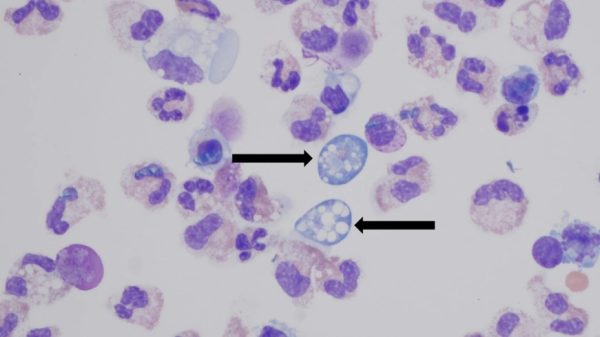
Brain Eating Amoeba Reported In Kerala, India
Kerala has issued an alert for a brain-eating amoeba called Naegleria fowleri. So far, four deaths have been reported from the state. This brain eating amoeba can cause a rare but often fatal brain infection called Primary Amebic Meningoencephalitis (PAM). It is typically found in warm freshwater bodies like lakes, rivers, and hot springs.
The amoeba is known to enter the human body through nasal passages, and it travels through the cribriform plate – which is located at the base of the skull and transmits olfactory nerves to enable the sense of smell – to reach the brain -BBC report.
Since 1965, around the world four hundred cases of PAM reported, while India has had fewer than thirty cases so far. The mortality rate is 97%.
Infection usually occurs when contaminated water enters the body through the nose, allowing the amoeba to travel to the brain. Early detection and treatment are crucial for survival.
Precautions and care measures to help prevent infection from the brain-eating amoeba, Naegleria fowleri.
Symptoms:
If you suspect exposure to Naegleria fowleri and experience symptoms, seek immediate medical attention. Symptoms of PAM usually appear within 1 to 9 days of exposure and can include:
- Severe headache
- Fever
- Nausea and vomiting
- Stiff neck
- Loss of balance
- Seizures
- Hallucinations
- Altered mental status.
Precautions:
- Avoid warm freshwater: Refrain from swimming or diving in warm freshwater bodies like lakes, rivers, hot springs, and poorly maintained or minimally chlorinated pools, especially in the summer.
- Nose protection: Use nose clips or hold your nose shut when swimming in freshwater to prevent water from entering your nasal passages.
- Avoid stirring up sediment: Try not to disturb sediment in shallow, warm freshwater areas where the amoeba may be present.
- Use treated water: Ensure that water used for activities such as nasal rinsing, showering, or swimming is properly treated and chlorinated.
- Boil or filter water: Use boiled or distilled water for sinus rinses or neti pots. Tap water should be boiled for at least one minute (or three minutes at higher altitudes) and then cooled before use. Alternatively, use water that has been filtered using filters with a pore size of one micron or smaller.
- Avoid using untreated tap water: Do not use untreated tap water for nasal irrigation or ablution practices.
Treatment:
Early diagnosis and treatment are crucial for improving survival chances. Healthcare providers may use a combination of antifungal and antimicrobial medications, including:
- Amphotericin B: An antifungal medication administered intravenously or intrathecally (into the spinal canal).
- Miltefosine: An experimental drug that has shown some success in treating PAM.
- Fluconazole, Rifampin, and Azithromycin: Additional medications that may be used in combination.
What public can do to prevent spreading the amoeba?
- Stay informed about local health advisories, especially if you live in or plan to visit areas where Naegleria fowleri is known to exist.
- Practice good hygiene and safety measures when engaging in activities involving freshwater.
- Educate family members and friends about the risks and precautions associated with Naegleria fowleri to raise awareness and prevent infections.
References:
https://economictimes.indiatimes.com/
Kerala: Teenager survives rare brain-eating amoeba disease (bbc.com)
Image credit: www.CDC.gov: High resolution of Naegleria fowleri ameba in a person’s cerebrospinal fluid. Photo: Dr. James Roberts, Children’s Healthcare of Atlanta
Author: Sumana Rao | Posted on: August 7, 2024
« Facts About Ashwagandha The Stress Buster Indian Ginseng WHO Declares Mpox Outbreak A Public Health Emergency Of International Concern »






















Write a comment